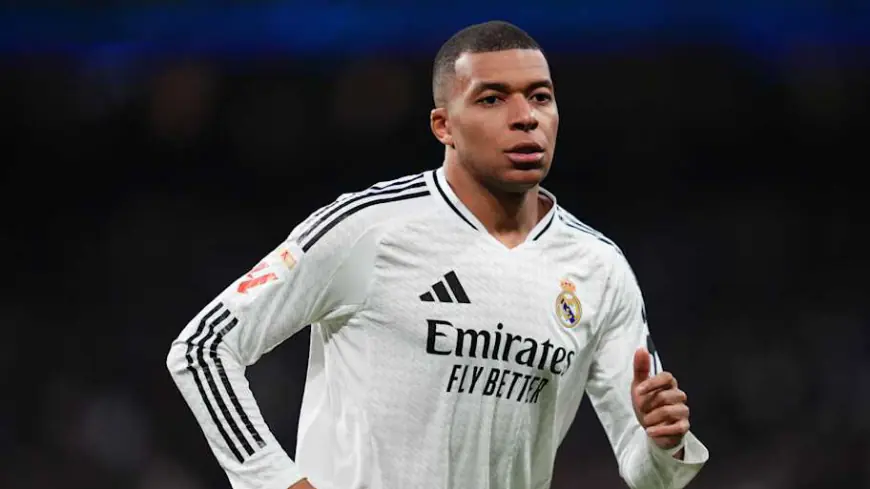How the UEFA Champions League Impacts European Football

The UEFA Champions League is far more than just a football tournament—it’s a colossal force shaping the very fabric of European football. From the way clubs operate financially, to how players become global superstars, to how fans connect with the sport, the Champions League casts a long and powerful shadow.
No competition in club football commands such prestige or generates such passion. And thanks to modern technology—and the widespread use of Soccer Streams—fans across the world now experience its impact in real-time, fueling the Champions League’s status as the jewel of European football.
Let’s dive into how the Champions League influences the European game from top to bottom, and why its ripple effects touch every corner of the footballing world.
How to Watch UEFA Champions League Free Live Streams
The Financial Powerhouse
Perhaps the biggest impact of the Champions League lies in its staggering financial rewards. Qualification alone brings significant income, even for clubs that don’t advance far.
-
Prize Money: UEFA distributes hundreds of millions of euros annually among participating clubs. Even a modest run in the group stage can transform a club’s budget.
-
Broadcasting Rights: TV deals are worth billions, funding everything from player transfers to stadium improvements.
-
Sponsorships & Merchandise: The prestige of playing in the Champions League elevates a club’s brand, attracting bigger sponsors and higher shirt sales.
This money isn’t just theoretical—it changes how clubs plan their seasons. For many, securing a Champions League spot is as vital as winning domestic silverware.
Fans following financial analyses on sports networks—and through discussions on Soccer Streams forums—often debate whether these windfalls make European football more competitive or simply widen the gap between the rich and the rest.
Shaping Club Strategies
The pursuit of Champions League success affects how clubs build their teams and approach competitions.
-
Squad Investment: Top clubs invest heavily in world-class players, hoping to compete on Europe’s biggest stage.
-
Managerial Changes: A few poor results in Europe can cost a manager his job—even if domestic form is solid.
-
Fixture Management: Balancing league matches with midweek European games demands depth, rotation, and tactical flexibility.
Clubs outside the elite sometimes gamble on heavy spending to reach the group stage, dreaming of the financial boost. Fans track these risks closely through news outlets and debates on Soccer Streams communities, which often feature transfer rumors and strategic breakdowns.
Creating Superstars
The Champions League is a global spotlight. Players who shine on this stage often become household names overnight.
Think of:
-
Kylian Mbappé’s breakout with Monaco in 2017
-
Erling Haaland’s remarkable scoring run with Salzburg and Dortmund
-
Lionel Messi’s teenage brilliance against Chelsea
A single moment—a hat-trick, a stunning free-kick—can transform a young prospect into a multi-million-dollar brand.
Soccer Streams play a huge role here. Fans without access to official broadcasts still watch live matches, highlights, and clips, ensuring these emerging stars become known worldwide. Social media explodes after a dazzling Champions League performance, fed by the immediacy of Soccer Streams footage shared across platforms.
Elevating National Leagues
The Champions League’s influence trickles down to domestic competitions:
-
Attracting Talent: Stars are more likely to sign for clubs that regularly play in Europe.
-
League Rankings: UEFA’s coefficient system ranks leagues based on club performances in European tournaments. Higher rankings mean more Champions League spots.
-
Rivalries Intensify: Domestic rivalries gain another layer when European qualification is at stake.
Fans know that finishing fourth in the Premier League or Serie A might be worth tens of millions, keeping late-season matches incredibly intense. Discussions about these battles often spill over into Soccer Streams forums, where fans analyze fixtures and root for scenarios that boost their clubs’ European hopes.
Influencing Tactics and Style
The Champions League is not just about who wins—it’s also a laboratory for football tactics.
-
Managers adapt and innovate to counter Europe’s best.
-
Defensive systems, pressing techniques, and attacking patterns spread across leagues.
-
Success in Europe often shapes tactical trends worldwide.
For example:
-
Pep Guardiola’s positional play at Barcelona and Manchester City has influenced coaching worldwide.
-
Italian defensive discipline continues to frustrate even the most attacking sides.
-
Counter-attacking strategies like those of Atlético Madrid have been adopted by underdog clubs seeking European success.
Fans eager to understand these tactical battles often seek out in-depth analysis via Soccer Streams, where alternative commentary, fan channels, and tactical breakdowns are widely shared.
Cultural and Emotional Impact
Football is not just sport—it’s culture, identity, and emotion. The Champions League’s famous anthem, dazzling night games, and dramatic storylines are woven into Europe’s cultural fabric.
-
Iconic Moments: Last-minute goals, penalty shootouts, miracle comebacks.
-
Club Legacies: European titles define club histories and fan identities.
-
Shared Experiences: Fans worldwide connect through the highs and lows of the competition.
No matter where you’re from, if you love football, you’ve likely felt goosebumps when hearing the Champions League anthem before kickoff. Even fans who rely on Soccer Streams rather than official broadcasts still share in these moments, often posting videos and reactions in real-time.
The Role of Soccer Streams
While official broadcasters spend billions on rights, Soccer Streams have changed how fans consume the Champions League.
-
Fans in regions with limited TV access turn to streams to follow live games.
-
Clips and highlight reels spread instantly, making iconic moments go viral.
-
Alternative commentary and fan channels offer unique viewing experiences.
However, there’s a downside:
-
Many Soccer Streams operate in legal gray areas, putting fans at risk of malware, poor video quality, or legal consequences.
-
Broadcasters and UEFA continually work to block illegal streams, but fans persist in finding alternative sources.
Nonetheless, Soccer Streams have democratized access to football, making the Champions League a truly global phenomenon.
Challenges Ahead
While the Champions League thrives, it also faces challenges:
-
Financial Disparity: Rich clubs continue to grow richer, making it harder for smaller clubs to compete.
-
Super League Threats: Periodic proposals for breakaway leagues highlight concerns about football’s direction.
-
Scheduling Demands: Players face congested calendars, risking fatigue and injuries.
Fans debate these issues passionately in Soccer Streams discussions, worried about how changes might affect the competition they love.
Conclusion
The UEFA Champions League is more than a football competition—it’s an institution that defines European football’s past, present, and future. Its impact is felt in financial strategies, domestic leagues, player careers, tactics, and the cultural heartbeat of the sport.
And thanks to the reach of Soccer Streams, millions of fans worldwide stay connected to every thrilling moment, even if they can’t watch through traditional channels. While streaming has its risks, it has also played a crucial role in spreading the Champions League’s magic to every corner of the planet.
As each new season begins, one truth remains: the UEFA Champions League will continue to shape European football’s destiny. Fans, whether tuning in on TV or hunting for Soccer Streams, wouldn’t have it any other way.
What's Your Reaction?
 Like
0
Like
0
 Dislike
0
Dislike
0
 Love
0
Love
0
 Funny
0
Funny
0
 Angry
0
Angry
0
 Sad
0
Sad
0
 Wow
0
Wow
0

















































